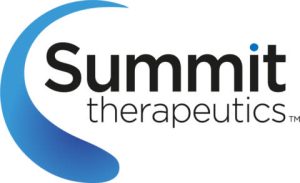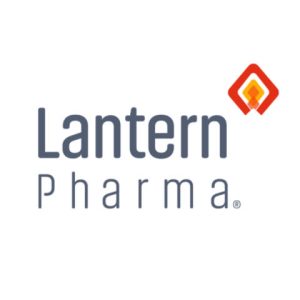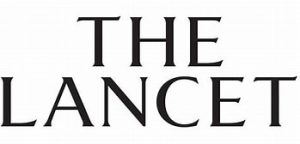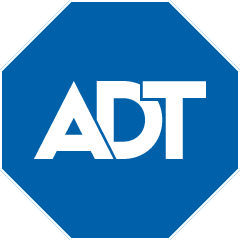U.S. Stocks Enjoy Rally As Core Inflation Decelerates On Wednesday – $ADT $EPRX $LTRN $MODD $SMMT Rise!

* Market breadth was decisively positive, with advancers outnumbering decliners by more than 5 to 1 on both the NYSE and Nasdaq.
* Trading volume was substantial, with 1.0 billion shares changing hands on the NYSE and 7.2 billion on the Nasdaq.
* The rally pushed the S&P 500 into positive territory for 2025, up 1.2% year-to-date.
* Treasury yields declined sharply, with the 10-year yield settling 14 basis points lower at 4.65%.
Impact of CPI Report
The December Consumer Price Index (CPI) report played a pivotal role in driving market sentiment, revealing a deceleration in core inflation. Year-over-year core CPI dropped to 3.2% from 3.3%, alleviating concerns about persistent inflationary pressures. This better-than-feared data prompted a significant retreat in Treasury yields, with the benchmark 10-year yield declining 14 basis points to 4.65%. Despite the positive market reaction, it’s worth noting that inflation remains well above the Federal Reserve’s 2% target, albeit this target is tied to the PCE Price Index rather than CPI.
* The CPI report showed a 0.4% increase in headline inflation for December, slightly above the 0.3% consensus.
* Core CPI, which excludes volatile food and energy prices, rose 0.2% month-over-month, in line with expectations.
* The data sparked optimism about potential interest rate cuts, fueling the day’s rally across equity markets.
Sector Performances and Breadth
Communication services, materials, and information technology sectors led the market rally, with consumer discretionary stocks also posting strong gains. The S&P 500 financial sector benefited significantly from positive earnings responses, advancing 2.6%. In contrast, defensive sectors lagged, with consumer staples declining 0.1% and healthcare gaining a modest 0.2%. Market breadth was overwhelmingly positive, as advancers outnumbered decliners by more than 5 to 1 on both the NYSE and Nasdaq, reflecting widespread investor optimism across various market segments.
Vista Partners Watchlist Highlights

Summit Therapeutics Inc. (NASDAQ: SMMT, $18.20, +9.31%), a biopharmaceutical oncology company focused on the discovery, development, and commercialization of patient-, physician-, caregiver- and societal-friendly medicinal therapies intended to improve quality of life, increase potential duration of life, and resolve serious unmet medical needs, announced (Dec. 13) the grant of inducement awards of options to purchase a collective total of up to 98,000 shares of common stock. Awards were made to six new employees of the Company.

On December 10, 2024, IN8bio announced updated data from the ongoing Phase 1 trial of INB-100, an allogeneic, haploidentical gamma-delta T cell therapy in older patients with hematologic malignancies undergoing haploidentical stem cell transplant (HSCT) with reduced intensity conditioning (RIC) at the 2024 American Society of Hematology (ASH) Annual Meeting, being hosted in San Diego, CA. Dr. Joseph P. McGuirk, Schutte-Speas Professor of Hematology-Oncology, Division Director, Hematologic Malignancies and Cellular Therapeutics Medical Director, Blood and Marrow Transplant, The University of Kansas Cancer Center stated, “This data demonstrates the potential of allogeneic INB-100 gamma-delta T cells to provide durable relapse-free remissions in high-risk or relapsed AML patients undergoing HSCT. Older, frailer patients who receive non-myeloablative, reduced intensity conditioning regimens typically have a significant risk of relapse. Historically, approximately 25% of AML patients undergoing HSCT would be expected to have a leukemic relapse within the first 100 days post-transplant, with up to nearly 50% of such patients experiencing relapse by one-year, which remains the primary cause of death. The longer AML patients remain in remission post-HSCT, the greater their probability of survival. These observed long-term durable remissions using allogeneic gamma-delta T cells are very encouraging and we look forward to announcing additional data next year.”

Serina Therapeutics (SER, $4.81, -1.84% and is up +21.41% in the aftermarket at $5.84) is a clinical-stage biotechnology company developing a pipeline of wholly owned drug product candidates to treat neurological diseases and other indications. Serina’s POZ Platform™ provides the potential to improve the integrated efficacy and safety profile of multiple modalities including small molecules, RNA-based therapeutics and antibody-based drug conjugates (ADCs). Serina is headquartered in Huntsville, Alabama on the campus of the HudsonAlpha Institute of Biotechnology. For more information, please visit https://serinatherapeutics.com.

On Dec. 18, Serina’s CEO, Steven A. Ledger presented at Tribe Public’s Webinar Presentation and Q&A Event titled “Enabling Continuous Drug Delivery for Parkinson’s Disease & Beyond.”

Shares of Lantern Pharma (LTRN), an artificial intelligence (“AI”) company developing targeted and transformative cancer therapies using its proprietary RADR® AI and machine learning (“ML”) platform with multiple clinical stage drug program, closed at $3.53, +1.15%.
On December 9, Lantern announced that the first patient has been enrolled and dosed in Taiwan for its Phase 2 HARMONIC™ clinical trial evaluating LP-300 in never-smoker patients with non-small cell lung cancer (NSCLC) who have progressed after receiving treatment with tyrosine kinase inhibitors (TKIs). The enrollment of the first patient in Taiwan extends the recent expansion of the HARMONIC™ trial into Asia, where there is a notably higher prevalence of never-smoker NSCLC patients compared to Western populations. Taiwan represents a particularly important region for the trial, as more than half of all new lung cancer diagnoses in Taiwan occur in people who are classified as never-smokers. Never-smokers in the context of lung cancer have been commonly defined, by the CDC and other health agencies, as people who have smoked less than 100 cigarettes in their lifetime. The scientific and clinical community is increasingly recognizing that lung cancers in nonsmokers and never-smokers represent a distinct disease entity with unique clinical, genomic, pathological, and biological characteristics. Lantern believes that this has particular importance for the Harmonic™ trial, as it underscores the need of targeted, precision therapy approaches for this unique patient population. Lung cancer in never-smokers constitutes one of the top 10 causes of cancer-related deaths globally, making it a crucial focus for therapeutic innovation.
On December 3, Lantern announced that the FDA has granted Fast Track Designation for investigational drug candidate, LP-184, for treatment of Triple Negative Breast Cancer (TNBC). This marks the second Fast Track Designation received for LP-184 in 2024, following its designation for Glioblastoma in October.
On November 26, Lantern and its wholly-owned subsidiary Starlight Therapeutics, focused exclusively on CNS and brain cancers, announced the presentation of new preclinical data and Phase 1b trial design for LP-184 (to be developed as STAR-001 for CNS indications) in glioblastoma at the Society for Neuro-Oncology (SNO) 2024 Annual Meeting in Houston, Texas. The poster presentation highlighted LP-184’s unique mechanism of action, brain penetrance properties, and potential enhanced therapeutic effect when combined with spironolactone in glioblastoma multiforme (GBM). LP-184 is currently under investigation in a Phase 1a dose-escalation safety study (NCT05933265) in adult patients with advanced solid tumors including GBM. “The data and trial design presented at SNO2024 further validate and progress LP-184’s potential as a promising new treatment option for glioblastoma patients,” said Panna Sharma, President and CEO of Lantern Pharma. “Through our subsidiary Starlight Therapeutics, we are positioned to advance LP-184 as STAR-001 specifically for brain cancers and CNS indications, where treatment options are limited and often ineffective. The combination with spironolactone represents an innovative approach, which has been developed with the aid of our AI platform RADR®, to potentially enhance therapeutic response in this devastating disease.”
On Nov. 19, Lantern announced that the first patient has been dosed – as part of the expansion cohort – in Japan for its Phase 2 HARMONIC™ clinical trial evaluating LP-300 in never-smoker patients with non-small cell lung cancer (NSCLC) who have progressed after receiving treatment with tyrosine kinase inhibitors (TKIs). The dosing of the first patient in Japan marks a significant expansion of the HARMONIC™ trial into Asia, where there is a notably higher prevalence of never-smoker NSCLC patients compared to Western populations. The trial is being conducted at five sites across Japan, including the National Cancer Center Japan under the leadership of Dr. Yasushi Goto, a renowned physician-researcher focused on lung cancer.
- Lantern is advancing three AI-guided precision-oncology drug candidates in active Phase 1 and Phase 2 clinical trials, while evaluating additional ADC-based preclinical molecules for development.
- Preliminary patient data and clinical readouts for the Phase 2 LP-300 Harmonic™ Trial showed an 86% clinical benefit rate in the initial 7 patient lead-in cohort, and additional patients continue to be enrolled in the US.
- The Harmonic™ Trial has been expanded to both Japan and Taiwan with an expected 10 sites in East Asia; 5 in each country where the population of never-smokers is 33 to 35 percent of new cases in NSCLC.
- Phase 1 clinical trials for both synthetic lethal drug candidates, LP-184 and LP-284, continue to advance with no dose-limiting toxicities observed in any of the patient cohorts enrolled and over 50 patients dosed to-date across both trials.
- LP-184, which will be developed as STAR-001 for CNS and other neuro-oncology indications, received Fast Track Designation in Glioblastoma (GBM) from the FDA.
- Patients with recurrent GBM have been enrolled in the LP-184 Phase 1a trial at 2 academic centers, including Johns Hopkins, and 1 community site; the data will help guide later stage clinical development planned to be sponsored by Starlight Therapeutics during early 2025.
- Biomarker analysis for PTGR1 expression using qPCR for the first 7 cohorts of patients enrolled in the Phase 1a LP-184 clinical trial has begun, and will help guide the advancement of PTGR1 as a key RNA biomarker that can guide patient response prediction.
- Three U.S. FDA Rare Pediatric Disease Designations were granted to LP-184 in three ultra rare children’s cancers.
- Three scientific publications in Q3 including: a peer-reviewed paper regarding the unique AI-powered module for ADC development as part of the RADR® platform; and findings presented at conferences regarding the ongoing development of Lantern’s synthetically-lethal drug candidates at the Immuno-Oncology Summit for LP-184 and The Society of Hematologic Oncology for LP-284.
- Approximately $28.1 million in cash, cash equivalents, and marketable securities as of September 30, 2024.
On Nov. 5, Starlight Therapeutics, a wholly-owned subsidiary of Lantern Pharmaceuticals, formed to develop transformative CNS cancer treatments with AI-powered innovation, announced the formation of a Scientific Advisory Board (“SAB”) to support the development of lead compound STAR-001. The inaugural SAB will work closely with Starlight’s management team to provide strategic guidance and critical expert insights into the development of STAR-001 in CNS and brain tumors for both children and adults. “The establishment of the SAB represents a significant advancement for Starlight, and we are honored to be joined by such accomplished scientific experts. We look forward to drawing upon the deep subject matter expertise of Drs. Berger, DeAngelis, Grossman and Laterra, to shape the development path of STAR-001,” said Dr. Marc Chamberlain, M.D., Starlight’s Chief Medical Officer. “We also extend congratulations to Drs. Berger and Grossman on being recipients of the prestigious Lifetime Achievement Award from the Society of Neuro-oncology. Congratulations!”
On Monday, October 28, Tribe Public featured Panna Sharma, Lantern’s President and CEO where he discussed in detail how big data and AI are being leveraged to advance the development of multiple indications for drug-candidates LP-184 and LP-284 during the CEO Prersentation and Q&A Event titled “Leveraging Artificial Intelligence to Develop Therapies for Brain and Childhood Cancers”. Lantern also discussed how their algorithm for blood-brain-barrier (BBB) penetrability played a critical role in supporting the development of LP-184 across multiple CNS cancer indications, including GBM. You may view the event video now at this link.
On October 15, Lantern Pharma announced that the FDA has granted Fast Track Designation for investigational drug candidate, LP-184, for treatment of Glioblastoma. LP-184 is currently in a Phase 1A clinical trial designed to evaluate the safety and tolerability of the synthetically lethal investigational drug candidate in a broad range of solid tumors, including Glioblastoma (GBM). LP-184 was optimized and advanced in part with Lantern’s AI platform, RADR®, to aid in the validation of mechanisms that could be exploited in the clinical setting to eradicate challenging cancers, and uncover insights in targeted patient populations. RADR® is Lantern’s AI platform for cancer therapy discovery, development and rescue with over 100 billion data points and aiding in the development of both Lantern’s portfolio and development initiatives with Lantern’s collaborators. Fast Track Designation is designed to expedite FDA review of important new drugs to treat serious conditions and fill an unmet medical need. Fast Track Designation for LP-184 (STAR-001) recognizes Glioblastoma (GBM) as a serious condition impacting more than 13,000 U.S. adults each year and approximately 300,000 globally. A phase 1b/2a clinical trial for recurrent GBM is targeted to start in late 2024/early 2025. LP-184, which will be developed as STAR-001 for CNS and other neuro-oncology indications by Starlight Therapeutics, a wholly owned subsidiary of Lantern Pharma, has the potential to be the first new drug for treating GBM in more than 20 years.
On September 23, Lantern announced that the company has been granted three rare pediatric disease designations (RPDD) by the FDA. Lantern was granted these rare pediatric disease designations in: malignant rhabdoid tumors (MRT), rhabdomyosarcoma (RMS), and hepatoblastoma. Rare pediatric diseases are defined by the FDA as serious or life-threatening conditions primarily affecting children under 18, with fewer than 200,000 cases in the U.S. A key benefit of obtaining a RPDD is the potential to receive a priority review voucher following FDA approval of a product with RPDD if the marketing application submitted for the product satisfies certain conditions, including approval prior to September 30, 2026 unless changed by legislation. These vouchers, often called “golden tickets,” can significantly expedite the review process for future NDAs or biologic license applications, reducing the standard review time from about ten months to six. Sponsors can either use these vouchers themselves or sell them to other companies. These vouchers, in the recent past, have commanded sales prices of approximately $100 million USD.

Modular Medical, Inc. (NASDAQ: MODD, $1.19,+1.71%), an insulin delivery system technology company preparing to launch a market expansion product with a more accessible, easier to prescribe, and easier to pay for and live with technology. Using its patented technologies, the company seeks to eliminate the tradeoff between complexity and efficacy, thereby making top quality insulin delivery both affordable and simple to learn. Their mission is to improve access to the highest standard of glycemic control for people with diabetes taking it beyond “superusers” and providing “diabetes care for the rest of us.” Modular Medical was founded by Paul DiPerna, a seasoned medical device professional and microfluidics engineer. Prior to founding Modular Medical, Mr. DiPerna was the founder (in 2005) of Tandem Diabetes and invented and designed its t:slim insulin pump. More information is available at https://modular-medical.com.
After the close on December 19, Modular Medical announced a licensing and partnership agreement with Nudge BG. Lane Desborough, CEO of Nudge BG stated, “We are very excited to partner with Modular Medical to bring the next generation of automated insulin delivery (“AID”) to the marketplace. Nudge BG’s adaptive full closed loop AID technology, unlike the present Hybrid Closed Loop products, complements Modular Medical’s easy-to-use and cost-effective MODD1 insulin pump technology. Our combined system is intended to nudge blood glucose by making small changes to insulin delivery based on estimated glucose inputs from a continuous glucose monitor. We believe most people living with insulin-requiring diabetes find it difficult or impossible to sustain the therapy effort which contemporary AID systems demand, including counting carbohydrates and calculating bolus delivery amounts, preventing them from reaping the benefits of the present technology. It has been the goal of Nudge BG to design an AID system that will truly make the diabetes management experience both effective and less burdensome for users. Our system will fully automate mealtime insulin delivery, freeing people with diabetes from the risk and difficulty of bolusing, while still achieving glycemic goals.”
Paul DiPerna, President and CTO of Modular Medical, stated “Our goal at Modular Medical is to bring the benefits of insulin pump technology to the approximately 80% of potential adopters who are not on pumps because they see current AID-enabled systems as too complex, too cumbersome, and too costly. The Nudge BG partnership is another step in our efforts to make the experience of diabetes management as low touch and simple as possible by reducing the amount of time, training, and effort a user will spend daily on managing insulin, while still providing the beneficial results of pumping as compared to multiple daily injections.”
Mr. Desborough has been developing control algorithms in safety-critical industries for the past 35 years. He was formerly Co-Founder and Chief Engineer of Bigfoot Biomedical and previously served as Chief Engineer, Closed Loop/Insulin Delivery at Medtronic Diabetes. Mr. Desborough has been developing commercial AID systems since 2010, soon after his son was diagnosed with type-1 diabetes.
On November 21, Modular announced that it has priced an underwritten public offering (the “offering”) of 5,450,573 shares of its common stock. The offering was led by existing institutional investors, including Manchester Explorer, L.P., which is the largest shareholder of the Company and is managed by Jeb Besser, Modular Medical’s Chief Executive Officer. The shares of common stock are being sold at a price to the public of $1.50 per share of common stock, less underwriting discounts and commissions. The gross proceeds to the Company from the offering are expected to be approximately $8.2 million, before deducting underwriting discounts, commissions and estimated offering expenses payable by the Company. The Company intends to use the net proceeds from the offering to fund operations and for working capital and general corporate purposes, including capital expenditures. The offering is expected to close on or about November 25, 2024, subject to the satisfaction of customary closing conditions.
On November 11, Modular Medical, Inc.’s Chief Executive Officer, Jeb Besser delivered a presentation titled “Tailoring GLP-1 Weight Loss Treatments: Innovative Approaches To Personalized Dosing.” He was also available for a 5-10 minute Q&A session at the end of the presentation.
On Nov. 7 Modular Medical announced successful results from its pre-clinical GLP-1 proof of concept study. They highlighted the following: Study showed more potent weight loss and blood glucose control with the addition of a mealtime bolus of a rapid acting GLP-1 to basal delivery, Observed weight loss was 17% at 28 days, a 25% improvement over GLP-1 delivered as basal alone, & Findings suggest that pump delivery may be a viable approach to achieve GLP-1 weight and blood glucose benefits that are comparable with current treatment standards, either as initial treatment or for maintenance, while bringing personalized dosing flexibility. “With these encouraging results, we are now planning to take this concept of a synergistic basal-bolus GLP-1 combination into a human trial using our MODD1 device. We are considering both existing fast acting GLP-1s and other peptides for this trial, as we see this as a platform technology that could be used for more personalized titration for both non-responder or non-adherent patients experiencing GI and other issues with long acting GLP-1s, as well as for other specialty applications in metabolic therapies. This type of application is well suited for our MODD1 pump, given its quick training time, simple interface, high accuracy at low flow rates, reusable low-cost electronics, and a prefill-capable 3mL reservoir,” stated Jeb Besser, CEO of Modular Medical.
On September 18, Modular Medical announced the issuance of U.S. Divisional Patent Application No. 17/968,599. “The issuance of this patent and the associated claims represent a major step in our efforts to protect the intellectual property in the MODD1 pump platform,” stated Jeb Besser, CEO of Modular Medical. “Some of the key features of our novel, low-cost and accurate insulin delivery technology are now protected by this important issued U.S. patent, which we believe represents a significant new barrier to entry. Our eight families of patents around our pump are an important part of our strategic value and market positioning, and we look forward to announcing further issuances on our portfolio in the future.”
On Wednesday, September 4, Modular announced it has received U. S. Food and Drug Administration (“FDA”) clearance to market and sell its MODD1 pump in the United States. With its commercial manufacturing infrastructure substantially established, the Company anticipates the MODD1 should be available for sale in early 2025.

James (Jeb) Besser, CEO of Modular Medical (NASDAQ: MODD)
“For too long, the benefits of superior glycemic control achieved by insulin pumps have, due to cost and complexity, been restricted to only the most sophisticated, motivated and well-insured users. The goal of Modular Medical has always been to change this by making diabetes technology accessible and affordable to underserved communities. We seek to make the experience of going ‘on a pump’ simpler and less intimidating and to widen the base beyond the current pump users,” said Jeb Besser, CEO of Modular Medical.
 Shares of Indaptus Therapeutics, Inc. (Nasdaq: INDP) closed at $.87,-3.33% and is up +6.89% in the aftermarket at $.9299. Indaptus is a company with the ability to harness both the body’s innate and adaptive immune responses, believes that they are uniquely positioned to revolutionize the treatment of cancer and certain infectious diseases.
Shares of Indaptus Therapeutics, Inc. (Nasdaq: INDP) closed at $.87,-3.33% and is up +6.89% in the aftermarket at $.9299. Indaptus is a company with the ability to harness both the body’s innate and adaptive immune responses, believes that they are uniquely positioned to revolutionize the treatment of cancer and certain infectious diseases.
On Jan 13, Indaptus announced that it has entered into securities purchase agreements with investors for the issuance and sale in a private placement priced at-the-market under Nasdaq rules of an aggregate of 2,109,383 of its shares of common stock and accompanying warrants to purchase up to an aggregate of 2,109,383 of its shares of common stock. The combined effective purchase price for each share of common stock and associated warrants is $1.065. The closing of the offering is expected to take place on or about January 15, 2025, subject to the satisfaction of customary closing conditions.
On Jan 8, Indaptus published its accomplishments in 2024 and outlines the Company’s strategic goals for the year ahead.
Advancing Decoy20 in Clinical Trials
2024 was a year of meaningful progress for Indaptus’ lead clinical candidate, Decoy20, a novel immunotherapy designed to harness both innate and adaptive immune responses. Highlights from the Company’s Phase 1 clinical trial include:
-
Second Cohort Results (March 2024): Building on the Company’s November 2023 findings, Decoy20 demonstrated a broad immune response across multiple tumor types in patients, underscoring the platform’s potential as a monotherapy.
-
Weekly-Dose Cohort Initiation (May 2024): After receiving Safety Review Committee approval, the Company dosed its first patient in the weekly-dose portion of the trial. Notably, no new, clinically significant treatment-related adverse effects were observed.
-
Higher Dose Expansion (September 2024): Following a positive safety review, Indaptus initiated a higher-dose weekly regimen, further expanding the scope of the trial to evaluate Decoy20’s safety and efficacy.
Key Scientific Presentations, Publications and Advancements
Indaptus showcased Decoy20’s potential through a variety of presentations at major industry conferences and peer reviewed journals:
-
AACR Annual Meeting (April 2024): Demonstrated that Decoy activates multiple innate and adaptive immune cell types, highlighting its promise as an anti-tumor therapeutic.
-
ASCO Annual Meeting (June 2024): Shared promising preliminary results, including immune marker activation in patients with advanced solid tumors following a single dose of Decoy20.
-
STING & TLR Targeted Therapies Summit (June 2024): Dr. Michael Newman was named meeting Chairperson for the second year in a row, and presented pre-clinical and clinical Decoy data.
-
Frontiers in Immunology (November 2024): Dr. Michael Newman’s groundbreaking research on the Decoy platform was published in Frontiers in Immunology, further validating the Company’s scientific foundation and enhancing visibility within the scientific community.
-
Society for Immunotherapy of Cancer (SITC) (November 2024): Presented encouraging data highlighting consistent safety outcomes with weekly Decoy20 dosing, while demonstrating its sustained ability to activate the immune system over time.
-
Decoy platform: The Company made significant progress expanding its Decoy platform, successfully producing engineered Decoy bacteria designed to activate targeted immune pathways, enhancing its potential for broader therapeutic applications.
Clinical Supply Agreement with BeiGene
In October 2024, Indaptus achieved a key milestone when it announced a clinical supply agreement with BeiGene to advance the evaluation of Decoy20 in combination with their PD-1 checkpoint inhibitor, tislelizumab. This agreement underscores the potential versatility of the Decoy platform as a standalone therapy and in synergy with an approved immunotherapy treatment modality. This clinical combination is important because, in pre-clinical animal models, Decoy20 demonstrated significant anti-tumor synergy in combination with a PD-1 checkpoint inhibitor.
Financial Strength
Indaptus raised a total of $5.5 million in 2024 through a series of strategic financing initiatives, ensuring funding to support ongoing research and development efforts into 2025.
2025 Outlook
Jeffrey Meckler, CEO of Indaptus Therapeutics, commented, “As we enter 2025, we remain committed to advancing Decoy20 through clinical trials and exploring its combination potential with BeiGene’s tislelizumab. We are excited about the progress we made in 2024 and optimistic about the transformative potential of our platform to address some of the most challenging cancers.”
Indaptus intends to maintain its commitment to robust data generation, with plans to share new findings at leading scientific forums as they become available, while actively pursuing opportunities to expand the applications of its Decoy platform.
The Company currently anticipates that it will achieve the following milestones in the first half of 2025:
-
Launch of Combination Cohort: The Company plans to open an amendment to its clinical trial to include a combination cohort evaluating Decoy20 in conjunction with the PD-1 checkpoint inhibitor, tislelizumab.
-
Expansion of Clinical Sites: Building on its progress in 2024, the Company intends to increase the number of participating clinical sites beyond the eight active locations at the end of last year, enabling broader patient enrollment.
-
Higher Dose Cohort Update: The Company plans to provide an update on the patients treated in the higher dose expansion cohort, providing insights into safety and immune activation at this dose level.
-
First Patient Dosed in Combination Cohort: The Company aims to start dosing the first patients in the combination cohort, marking an important step in evaluating Decoy20’s synergistic potential with checkpoint inhibitors.
The company believes these milestones, if achieved, will represent significant advancements in the clinical development of Decoy20 and the broader Decoy platform.

Eupraxia Pharmaceuticals (EPRX, $3.08, +.98%) is a clinical-stage biotechnology company leveraging its proprietary DiffuSphere™ technology to optimize drug delivery for applications with significant unmet need. The Company strives to provide improved patient benefit and has developed technology designed to deliver targeted, long-lasting activity with fewer side effects. DiffuSphere™, a proprietary, polymer-based micro-sphere technology, is designed to facilitate targeted drug delivery, with extended duration of effect, and offers multiple, highly tuneable pharmacokinetic (PK) profiles. This investigational technology can be engineered for use with multiple active pharmaceutical ingredients and delivery methods.
On Nov. 20, Eupraxia unveiled new pharmacokinetic (“PK”) data from its Phase 2a Eosinophilic Esophagitis (“EoE”) program. Management believes these data underscore the unique capabilities of Eupraxia’s proprietary DiffuSphere™ platform technology, which aims to provide precise, localized, safe, and effective long-lasting drug delivery. Most conventional drugs release in a pattern characterized by steep peaks and rapid declines in drug concentration, where peaks often lead to negative side effects, and troughs result in reduced efficacy. In contrast, DiffuSphere™ is a unique microsphere that is designed to enable precise drug release into target tissues with a flat, stable, and long-lasting profile, minimizing potential adverse events associated with high-dose systemic delivery. What sets DiffuSphere™ apart is its composition: a pure drug crystal encased in a microns-thick polymer shell. Eupraxia’s proprietary technology uses this polymer to precisely control a drug’s release, ensuring high drug concentrations in the target tissues while minimizing exposure to the rest of the body. This innovative approach has been observed in Eupraxia’s clinical programs, demonstrating precision, tolerability, and extended duration of delivering fluticasone propionate (“FP”) directly to the intended tissues for EoE and knee osteoarthritis (“OA”) patients.
On Nov. 15., Eupraxia Pharmaceuticals Inc.’s Chief Executive Officer, James Helliwell. M, delivered a presentation titled “Eosinophilic Esophagitis: The Emerging Digestive Disorder Frequently Misdiagnosed” and was available for a Q&A session at the end of the presentation. The video can be viewed below:
On Nov. 12, Eupraxia announced additional positive clinical data from its RESOLVE Phase 1b/2a trial, which is evaluating the safety and efficacy of EP-104GI as a treatment for eosinophilic esophagitis (“EoE”). EoE is an inflammatory-mediated disease in which white blood cells migrate into and become trapped in the esophagus, creating pain and difficulty with swallowing food. According to market research from Clearview Healthcare Partners, EoE affects more than 450,000 people in the United States and has been identified by the American Gastroenterological Association as rapidly increasing in both incidence and prevalence. Impacts from both symptoms and interventions frequently lead to mental health issues, compounding the disease burden of EoE for both the healthcare system and the individual. Eupraxia highlighted the following:
- One of three patients in Cohort 5 achieved complete histological remission at 12 weeks.
- Consistent improvement in patient-reported outcomes with six of six evaluable patients in the fourth and fifth cohorts experiencing a reduction in symptom (SDI1) scores at 12 weeks.
- At 24 weeks, the fourth cohort experienced the largest average reduction in SDI scores of all cohorts to date.
- The fifth cohort continued to show improved patient outcomes with the greatest percentage change in histology (EoEHSS2) scores of any cohort to date.
- Both the mean reduction in Peak Eosinophil Counts (PEC3)at four biopsy sites and the percent change in histology (EoEHSS2) scores showed a clear dose response across Cohorts 3 to 5, with Cohort 5 showing the greatest response. No serious adverse events reported in any of the five cohorts to date.
- Cohort 6 is now fully enrolled and dosed, with 12-week data anticipated in Q1 2025.
- On September 11, 2024, the Company announced additional positive clinical data from its RESOLVE Phase 1b/2a trial which is evaluating the safety and efficacy of EP-104GI as a treatment for eosinophilic esophagitis (“EoE”).
- Presented RESOLVE clinical trial data at the Controlled Release Society 2024 Annual Meeting and Expo in Italy in July, and at the 20th International Symposium on Digestive Endoscopy World Congress for Esophageal Diseases in Scotland in September.
- Subsequent to quarter end, on October 2, 2024, the Company announced the appointment of Dr. Amanda Malone as the Chief Operating and Scientific Officer of the Company. In addition, the Company announced the appointment of Dr. Rahul Sarugaser as Executive Vice President of Corporate Development.
- Subsequent to quarter end, on October 15, 2024, the Company announced that Phase 2b data from its SPRINGBOARD trial evaluating EP-104IAR for the treatment of knee osteoarthritis was published in leading peer reviewed medical journal The Lancet Rheumatology.
- Subsequent to quarter end, on October 31, 2024, the Company announced the closing of a non-brokered private placement of C$44.5 million, the appointment of Mr. Joseph Freedman to its Board of Directors and the termination of its new C$12 million convertible debt facility.
On Oct. 31 Eupraxia announced that it has completed a non-brokered private placement of 8,905,638 Series 1 Preferred shares of the Company (the “Preferred Shares”), at a price of C$5.00 per Preferred Share for aggregate gross proceeds of C$44,528,190, by way of a non-brokered private placement (the “Private Placement”). The Company intends to use the net proceeds from the Private Placement towards the funding of clinical trials for EP104GI, initiating research programs for new candidates and general corporate and working capital purposes of the Company and its affiliates. In connection with the closing of the Private Placement, the Company has appointed Mr. Joseph Freedman to its board of directors. Mr. Freedman is a private equity investor and corporate director with more than 25 years industry experience including, most recently, 18 years at Brookfield Asset Management, one of the world’s leading private equity and alternative asset management firms. Over his career at Brookfield, Mr. Freedman has held a number of positions, including Vice Chair of Private Equity, General Counsel and the Partner responsible for M&A transaction execution, fund formation and fund operations. Prior to joining Brookfield, he was a lawyer in the corporate finance group at a Toronto law firm, specializing in private equity transactions and public company mergers and acquisitions. Now retired from Brookfield, Mr. Freedman is a director of several private and public companies and non-profit organizations including the Centre for Aging and Brain Health Innovation (co-chair), Bridgemarq Real Estate Services (TSX:BRE) and Total Containment Inc. Mr. Freedman holds a joint MBA/LL.B from the Schulich School of Business at York University and Osgoode Hall Law School in Toronto.

On October 15, Eupraxia announced that Lancet Rheumatology, a leading independent, peer-reviewed journal committed to sharing progressive content relevant to rheumatology specialists worldwide, recently published Eupraxia’s Phase 2 data from its SPRINGBOARD trial evaluating EP-104IAR for the treatment of knee osteoarthritis. Publication of Eupraxia’s Phase 2b data in Lancet Rheumatology, a distinguished and respected journal, raises the profile of EP-104IAR. As outlined in Lancet Rheumatology, Eupraxia’s EP-104IAR imparts clinically significant and durable pain relief, while also having minimal changes in glucose and cortisol, along with stable fluticasone proportionate concentrations in plasma. The U.S. Centers for Disease Control and Prevention estimates that knee osteoarthritis affects more than 30 million people in the U.S. alone. You may read the Lancet Publication regarding Eupraxia at this link.

Shares of ADT Inc. (ADT), a leading provider of monitored security and automation solutions for residential and small business customers in the United States and Canada, closed at $7.22, +1.98%. On Oct, 28, ADT announced the pricing of the previously announced secondary public offering of 56,000,000 shares of the Company’s common stock held by certain entities managed by affiliates of Apollo Global Management, Inc. (the “Selling Stockholders”). The offering is expected to close on October 30, 2024, subject to satisfaction of customary conditions. The underwriters will have a 30-day option to purchase up to an additional 8,400,000 shares of common stock from the Selling Stockholders. The Company is not selling any shares and will not receive any proceeds from the offering. In addition, ADT has authorized the concurrent purchase from the underwriters of 16,000,000 shares of common stock as part of the secondary public offering at a price per share equal to the price per share to be paid by the underwriters to the Selling Stockholders (the “Share Repurchase”), subject to the completion of the offering. The Share Repurchase is part of the Company’s existing $350 million share repurchase program. The underwriters will not receive any underwriting fees for the shares being repurchased by the Company. Last week, ADT reported results for the third quarter of 2024 that beat the street’s estimates and highlighting the following: Continued strong financial results, cash generation, and leverage reduction, Revenue up 5% versus prior year period, GAAP income from continuing operations up 7%; Adjusted EBITDA up 6%, Record-high recurring monthly revenue; solid customer retention, & On track to achieve full year 2024 guidance metrics.
Quote of the Day
Videos
Post View Count : 501














